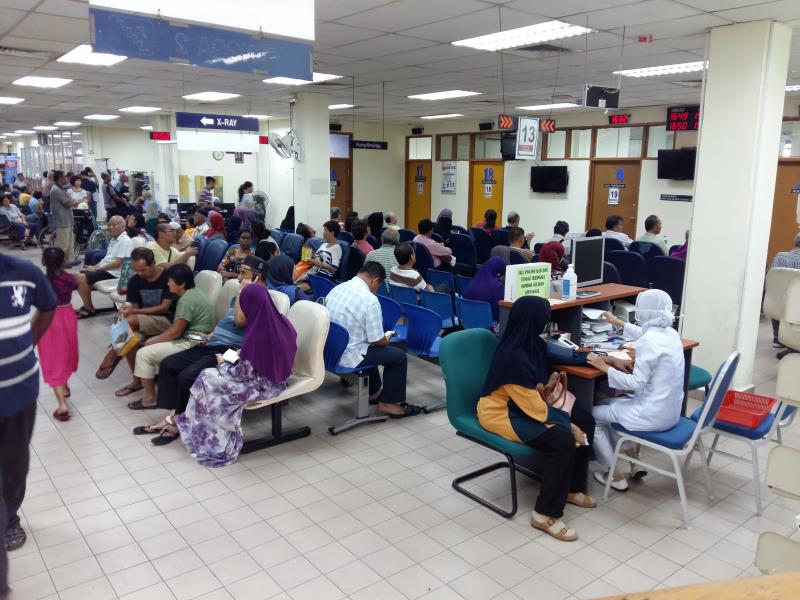MOH: Shifts, extended hours at government clinics for HCW welfare, public safety




 Patients awaiting services at Klinik Kesihatan Kelana Jaya, 6 September 2019. (Photo credit: Hafiez Razali/Shutterstock.com)
Patients awaiting services at Klinik Kesihatan Kelana Jaya, 6 September 2019. (Photo credit: Hafiez Razali/Shutterstock.com)Proposals for a shift system and longer operating hours at Malaysian public health clinics (Klinik Kesihatan, KK) are meant to ease burdens on healthcare workers (HCWs) and improve social distancing SOPs, according to the MOH.
In a statement dated 15 June, responding to a letter submitted by the Malaysian Pharmaceutical Society (MPS) on 31 May, MOH Director-General Datuk Dr Noor Hisham Abdullah clarified that the shift system aimed to enable compliance with the new normal of ‘practice 3W’ (Wash, Wear, Warn) and ‘avoid 3C’ (Crowded places, Confined spaces, and Close conversations) to control the spread of COVID-19. [https://www.facebook.com/MalaysianPharmaceuticalSociety/posts/3143481652401979]
“Shift systems aren’t new in civil service; they have been implemented previously to reduce the pressure on workers who need to work overtime,” said Noor Hisham.
He described three aspects of the proposed shift system, the first being its implementation by phases, starting with KKs already providing extended hours services from 8 am to 9.30 pm before being expanded to others, taking into account the level of manpower available at state, district, and individual facility levels.
Secondly, clinic staff would be divided into two teams manning shifts of 8 am to 5 pm and 12.30 pm to 9.30 pm. Designated staff would be assigned to handle on-call assignments after operating hours. This would enable HCWs at KKs more time off to rest and attend to family matters.
Thirdly, the number of patients would be determined by prior appointment throughout each KK’s operating hours to control patient numbers, the duration of each visit, and social distancing capacity, Noor Hisham added. This would avoid issues of a sudden addition in workload and reduce disease transmission risk for both HCWs and patients.
“In addition, in alignment with current technologies, the MOH has also been conducting virtual consultations and online appointment scheduling systems as a means of reducing the total number of patients coming physically to clinics, as well as the number present at any one time,” Noor Hisham said.
On 17 June, a joint statement was issued by a coalition of HCW associations and civil servant unions voicing their current opposition to a shift system being implemented. These groups included the Malaysian Medical Association (MMA), Congress of Unions of Employees in the Public and Civil Services Malaysia (Cuepacs), MPS, Malaysian Nurses Association (MNA), Malayan Nurses Union (MNU), and Kesatuan Pemandu-Pemandu Kementerian Kesihatan Semenanjung Malaysia (KPPKKSM).
“We believe the Health Ministry must increase staff and improve infrastructure before the shift system can be implemented. More detailed assessments and research must be conducted for its smooth implementation,” said coalition representatives. [https://www.thestar.com.my/news/nation/2020/06/17/medical-groups-object-implementation-of-shift-system-at-govt-health-clinics-will-meet-pm-to-resolve-matter]
In a Facebook poll conducted by Public Health Malaysia on 12 June, 63% of respondents also said they disagreed with the extension of KK operating hours. [https://www.facebook.com/publichealthmalaysia/posts/2656597294630126]
“If the KKs are obliged to do shifts, other [public] institutions should be obliged to do the same,” said Dr Syatirah Fatin Aini, a private clinician in Petaling Jaya, in a comment to the online poll. “Banks, public service offices, city councils … all those places need to have social distancing in place as well, not just the KKs.”